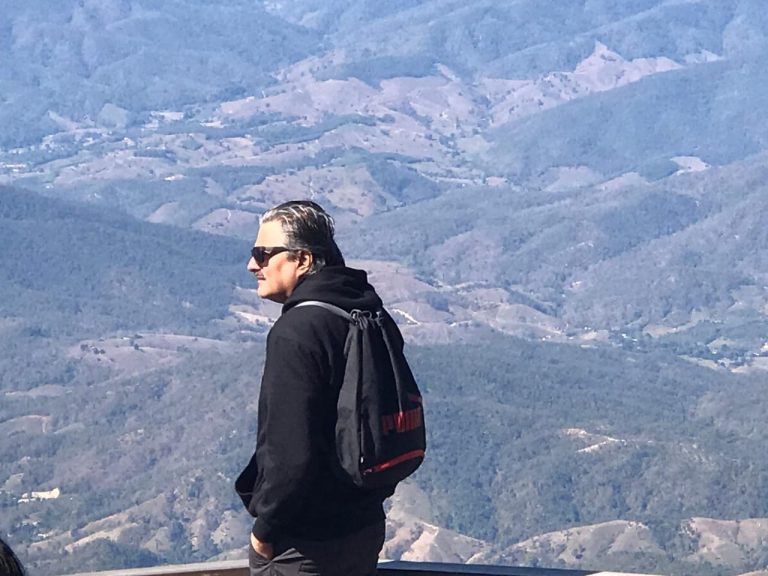
MY GRANDFATHER’S STORIES ABOUT HIS BUSINESS FAILURES AND SUCCESSES WERE WHAT INFLUENCED AND MOTIVATED ME TO KEEP GOING, SAYS NANDU ASRANI.
[During his college, Nandu first started pursuing chartered accountancy. Soon after he realized his creative passion, he switched to Advertising in 1982. Nandu set up Sleek advertising, an ad agency that catered to clients across the globe, directing over 200 films spanning ads and documentaries.
Nandu’s passion for entrepreneurship and preserving age-old craftsmanship and the Sindhi culture made him start several other ventures like wethesindhis.com through this initiative, he worked with artisans from the saline deserts of Kutch, Gujarat to popularize Ajrakh, Rallis a symbol of Sindhi culture and traditions.
He has authored the much acclaimed coffee table book on Sindhi Community – WE THE SINDHIS and a memoire of Dada JP Vaswani that sold copies world over. Nandu was also a regular columnist for Khaleej Times, Dubai and South China Morning post, Hong Kong.
A firm believer in Veganism as a way of life, Nandu strongly advocates this as a solution to many of global issues like climate change. In 2021, he started a new chapter in his entrepreneurial journey by donning a chef’s hat at the age of 60. Nandu recently launched The Thai Vegan Kitchen that offers authentic Thai Vegan takeaway menu in Bangalore. A Thai cuisine enthusiast, he now spends his time in his kitchen dishing up scrumptious takeaway meals for customers across the city.
Nandu is widely travelled – he is known to take the path less travelled, loves exploring new places and cultures across the globe. An avid sports enthusiast, in his free time, he enjoys a game of squash, Badminton, club cricket and golf. Sindh Courier shares his life story authored by him and published in Saaz Aggarwal’s book ‘Sindhi Tapestry’]
Doing business, the Shikarpuri-Sindhi way
It was the beginning of 1981. I was shattered. I had been studying and working to become a Chartered Accountant, and had just got my Intermediate exam results. I had failed. What was most disheartening was that I had missed the required passing percentage by just two marks.
In those days, we lived in Mumbai, in a joint family. We had a practice of all of us meeting together before dinner, sometimes over drinks, to chat about work, current news, and gossip. This is something I have continued doing with my extended family of eleven. I’ve found the ideas and thoughts shared, the fruitful discussions we have, and even our arguments, all lead to closer bonds.
Back to that evening in 1981. Seeing me dejected and depressed, my grandfather said, “It’s ok, give it up if you want to. You can always join the family business or set up something of your own. We already have an office which you can use.”
My grandfather, Harbhagwandas Asrani, was then in his sixties. He had started his career as a businessman and financier in Shikarpur at the age of fifteen, and subsequently set up offices in Mumbai and Tiruchirapalli.
“How much do you earn now?” he asked.
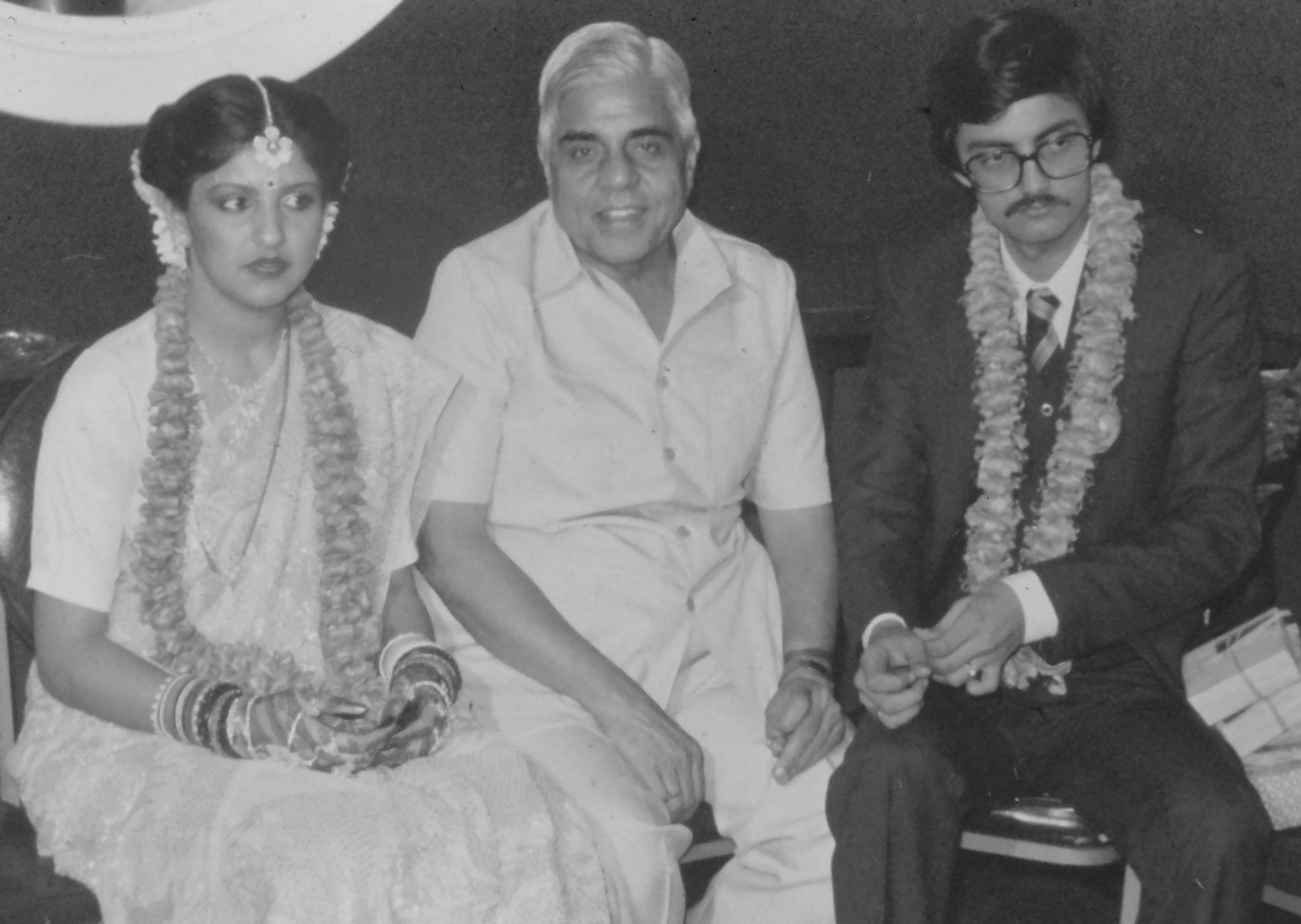
In those days, the stipend for an apprentice was Rs 150 per month. He smiled when I told him, replying, “In business, you can make that much in a day!” He knew that I had already started a small venture of my own, with sub-brokerage commissions from a stockbroker, by getting people to fill up my IPO forms.
“Of course, becoming a CA is great,” he continued, “but it is up to you.”
It didn’t take me much time to decide. My boss was aghast when I told him of my plans to quit CA. And when I told him I was planning to start an advertising agency – he was shocked. But it was he who had sent me to audit an advertising company for a month! I had found the business exciting and fun, and, more important, you didn’t need much capital to start. I had an office, I needed to learn the business and get clients, and this took some time, but it got done. I roped in my younger brother, and in a few years, we were handling a range of reputed clients in India and abroad.
My grandfather was by then semi-retired, but our evening family meets continued. There was lots to talk about – stock markets, business developments, his stories of Shikarpur and other parts of Sindh, his travels to Iran, and more.
In 1989, I hit a rough patch. Some of our clients defaulted on their payments, and one vanished overnight. In the advertising business, one needs to pay the publications on the due date. If you don’t pay by the sixtieth day – you are boycotted, and effectively out of business.
It was a precarious situation, and my grandfather understood. That evening, we made our drinks, my grandfather, my father and myself. The women of the family sat with us as we talked, occasionally getting up to attend to other things. Sipping his whisky, he smiled and told me, “Your problems are nothing. We faced much bigger problems and solved them, overcame them. We came here without a roof, without a plan, and figured out a way to survive and prosper. Even before that, my father went bankrupt in 1930. He survived; he prospered. Why can’t you?
“What matters in business is to keep your reputation intact. Money will come and go. But once people lose trust, you are zero. Reputation is the main asset in your balance sheet. So – figure out a way to pay the publications. You have to do that somehow. We can put up a part of the amount. Make yourself likable. If people like you, they will love doing business with you. It’s not difficult. Be interested in their lives, think from their point of view, cultivate new interests, read a lot, and develop a sense of humour.”
My grandfather talked to me about things that had happened to him, and the business situations he and his father had been through, and this was invaluable in shaping my thoughts. It changed my outlook and method of doing business, and helped me to gain long-lasting business relationships which have turned into close friendships.
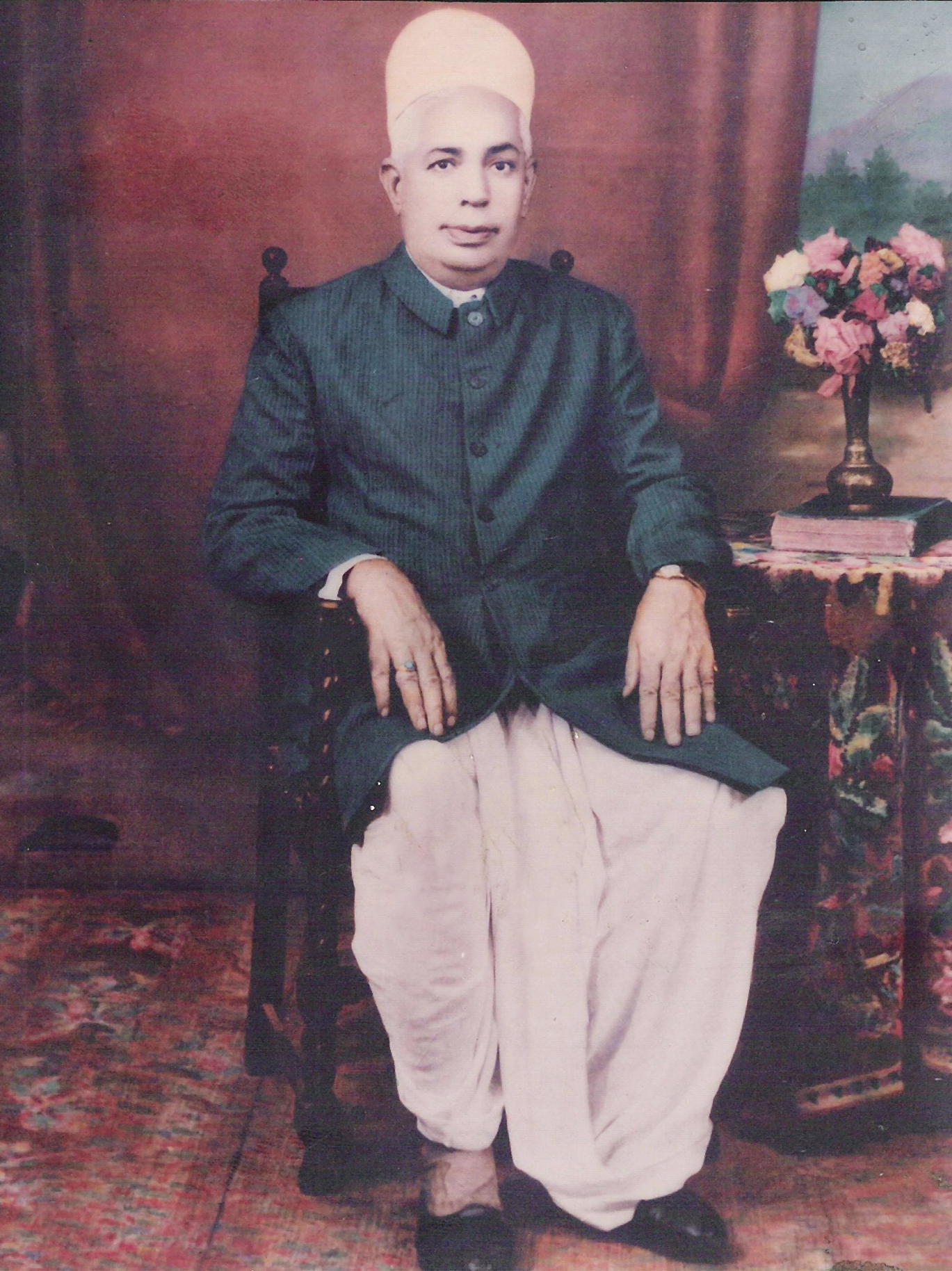
Kodumal’s father-in-law was Rai Bahadur Udhavdas Tarachand (1870-1943), a wealthy businessman and philanthropist who built a large charitable hospital in Shikarpur in 1937. The hospital is operational till today, but the statue of the founder seen here standing before it was removed after Partition. Unlike many statues, which were destroyed or vandalized at the time, it has been carefully preserved and maintained in excellent condition in the Sindhology Department of Sindh University in Jamshoro, Sindh. Image courtesy Shyam Shroff
It was 1898 when my great-grandfather, Kodumal Mohandas Asrani, and his four partners – his brother and first cousins – started a trading firm, m/s Bulchand Keshavdas, in Bandar Abbas on the coast of Iran. Bandar Abbas had thirty Shikarpuri trading firms in all, one of which was Parmanand Deepchand, whose sons are the four well-known Hinduja brothers.
Kodumal was the working partner, and he conducted a two-way trade: carpets and dry fruit from Iran to Russia, and masala, spices, embroidered goods and handicrafts from Shikarpur to Iran and Russia. From the Iran port to the Russian border, the mode of commuting to recover money owed, was on donkeys. Robberies were common en route, and travellers had to find innovative ways of concealing their money within their clothing.
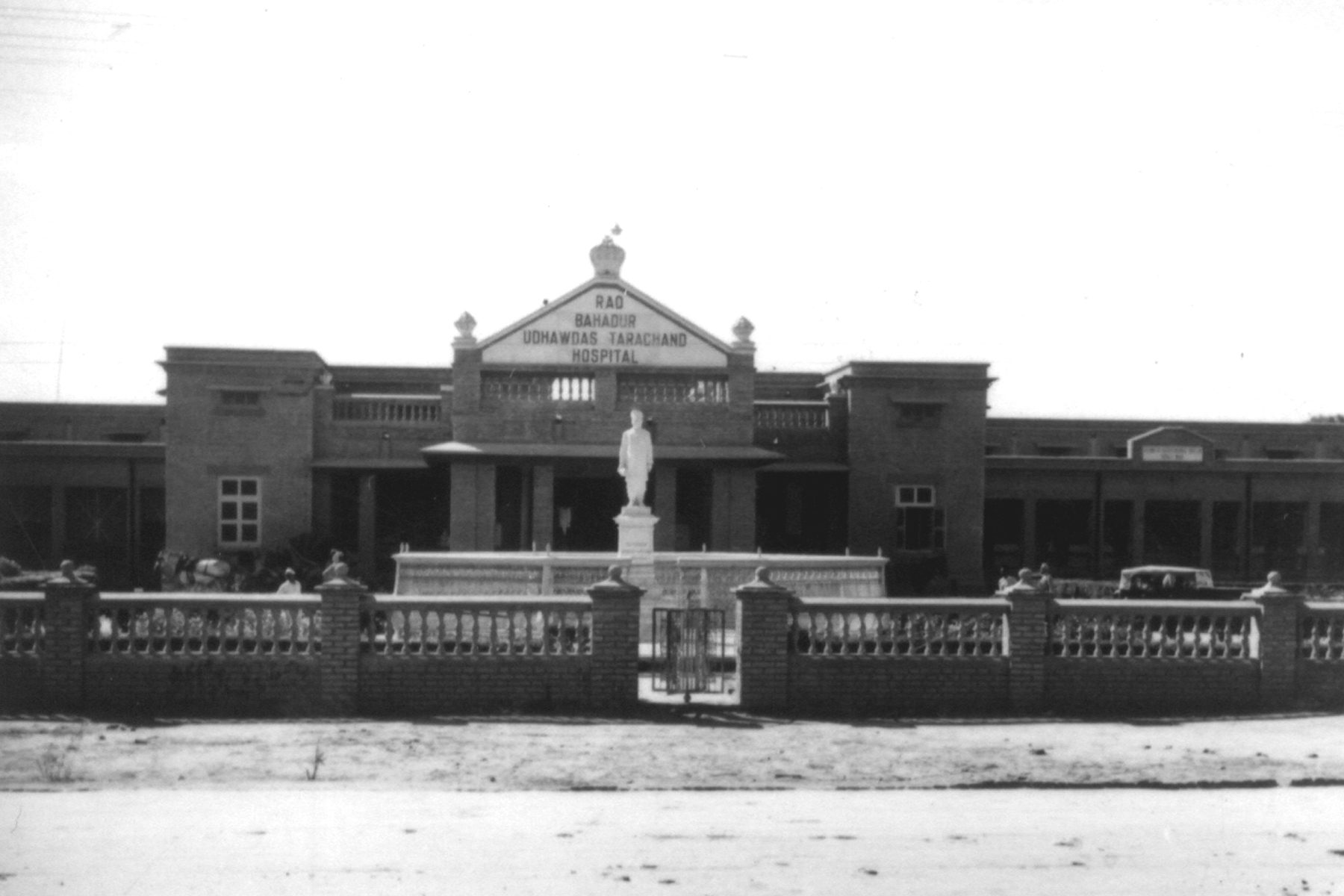
Business continued to be good even after the Russian Revolution of 1917. However, in 1929 the trading firms faced a huge setback. That year, “Russian ke note” as Sindhis referred to Russian currency, was weakening. Kodumal’s father-in-law was Rai Bahadur Udhavdas Tarachand, a wealthy and influential man, well acquainted with the high-ranking officers of the English administrative services. He received information that the Russian currency was being devalued and would soon be worthless. He sent a telegram to his son-in-law to sell all goods immediately. The manager received the telegram and ignored it (I can imagine him thinking, “What! Has the old man lost it?”) Having received no reply, Udhavdas sent another telegram with the same message the next day. This Kodumal was shown, and he started selling goods at a nominal discount. He replied to his father-in-law that he had indeed sold some stock. Next day a third telegram arrived: SELL EVERYTHING ANY PRICE STOP CURRENCY SOON TO BE ZERO STOP.
Kodumal immediately got to work and started selling goods at much lower prices, most at a big loss, to salvage whatever he could. The other firms realized something was wrong and some did manage to dispose their goods. However, many were left with nothing since the currency did indeed come down to zero. After the bloodbath, Kodumal managed to recover some capital but remained in debt. The firm was shut down and the partners split the liabilities.
Shikarpuris are pioneers in international finance, their methods and instruments having laid the base for the global banking industry. The city of Shikarpur lay on an ancient trade route and had developed into a hub of finance, gaining ground after Multan became unstable for political reasons. Many of our families migrated to Shikarpur from Multan. The hundi, their promissory note, was like currency in the pocket, and backed by trust. The hundi was honoured in many parts of Asia and the Middle East.
In 1930, with a tiny capital sufficient only for day-to-day needs and a debt of Rs10,000, enormous for the time, he headed to Bangalore seeking opportunities in the finance business. He was unable to set up an office there and a friend suggested Trichy, where they had a common family friend, Roopchand Asrani, running a finance business.
In Trichy, Roopchand Asrani offered Kodumal the use of his office since he was shifting to a bigger place. He gave it to him with a three-month rent waiver – an example of the trust and generosity with which bonds of friendship enhance a business environment.
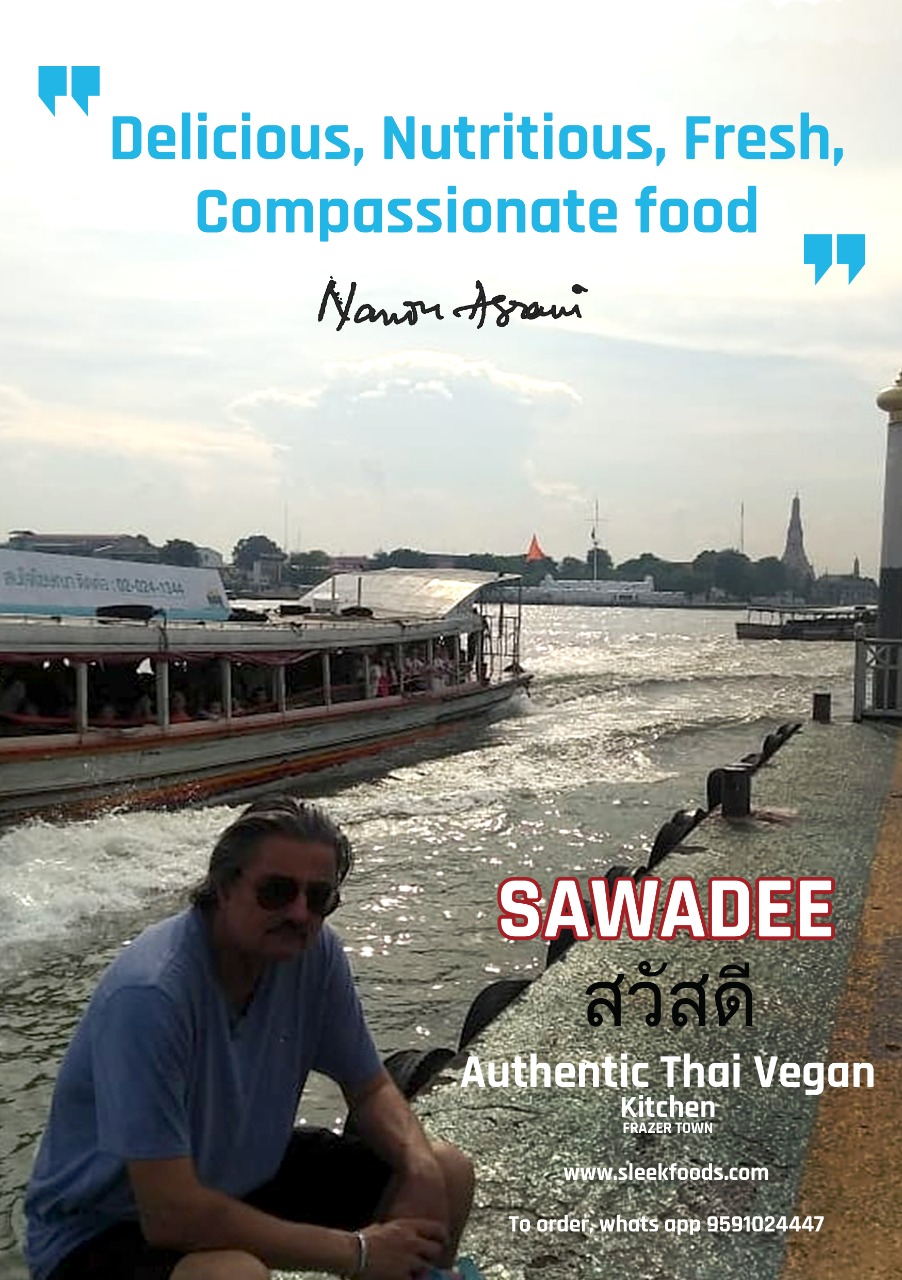
—
Kodumal’s business involved money deposited in Shikarpur, and deployed locally in the form of hundis in denominations of Rs200, 300, 500, 600 and 1000. The difference in interest, which was substantial, was the profit. The business thrived since private finance was the only source of capital for the businessmen, traders and shops of Trichy and its neighbouring towns.
The skill involved in this business was to judge the borrower’s integrity, business prospects, and repayment capability; and to ensure that the commitments in Shikarpur were honoured.
In a short time, Kodumal repaid his debts and as his moneylending business thrived, he built up capital and was soon deploying his own funds. After a few years, he went back to Shikarpur and sent his eldest son, my grandfather, to Trichy to run the office. Kodumal handled the supply of funds from Shikarpur, and Harbhagwandas deployed them, keeping a sharp eye on borrowers while also maintaining cordial family relationships with each one of them. Shikarpuri businesses picked up all over India and gained so much credibility that, as banking companies became established over time, they would first check the creditworthiness of borrowers with the traditional Shikarpuri moneylenders before lending.
In 1959, Harbhagwandas decided to start operations in Mumbai. By then he had four daughters and two sons. His elder son, my father, Parshotam, joined the business and they used to alternate between, Mumbai and Tiruchirapalli, with managers and staff in both offices.
So this was the backing I had when I faced a financial setback in 1989. And I did manage to get out of the spot I was in. With just four days to settle my dues, I offered lucrative deals to overseas recruitment advertisers to place ads (with zero margins to myself) on the condition that they paid up in advance. They were being paid by recruiters in UAE and I knew that the arrangement would be viable and profitable to them. I received cheques which would pay 80 percent of the outstanding bills – but in an era long before instant money transfers, I had to plead with the Finance head of the publication to deposit my cheques two days after the deadline. Surprisingly, he agreed!
In the years since then, I have tried many business ventures, investments, and entered all kinds of fields, including sports. I succeeded in some – and failed in many. I have made over two hundred ad films – including one with Dream Girl Hema Malini in 2019, a very down-to-earth and fun person to work with – as well as documentaries. I was a business columnist for publications in UAE and Hong Kong, and made clients and friends in many parts of the world. I’ve also authored a few books, one on the life and teachings of Dada JP Vaswani, an illustrated book on Jhulelal, which was published in parts in Times of India, and a coffee table book, We the Sindhis, currently out of print.
And whenever I stumbled or failed or encountered a business problem, I remembered my grandfather’s invaluable tips and his attitude and his blessings, and somehow got back on my feet.
My father and grandfather immersed themselves in the places where they lived. They spoke and read Tamil and blended seamlessly into the local population in Trichy. My great-grandfather would have been just as comfortable in Iran and Russia, talking to his customers and vendors in their own languages. We all speak Sindhi – even my children can understand the language, though they do not speak it since we did not speak to them in Sindhi when they were growing up. I’m comfortable with Gujarati, too, having done (and continuing to do) business with Gujaratis in the UK.
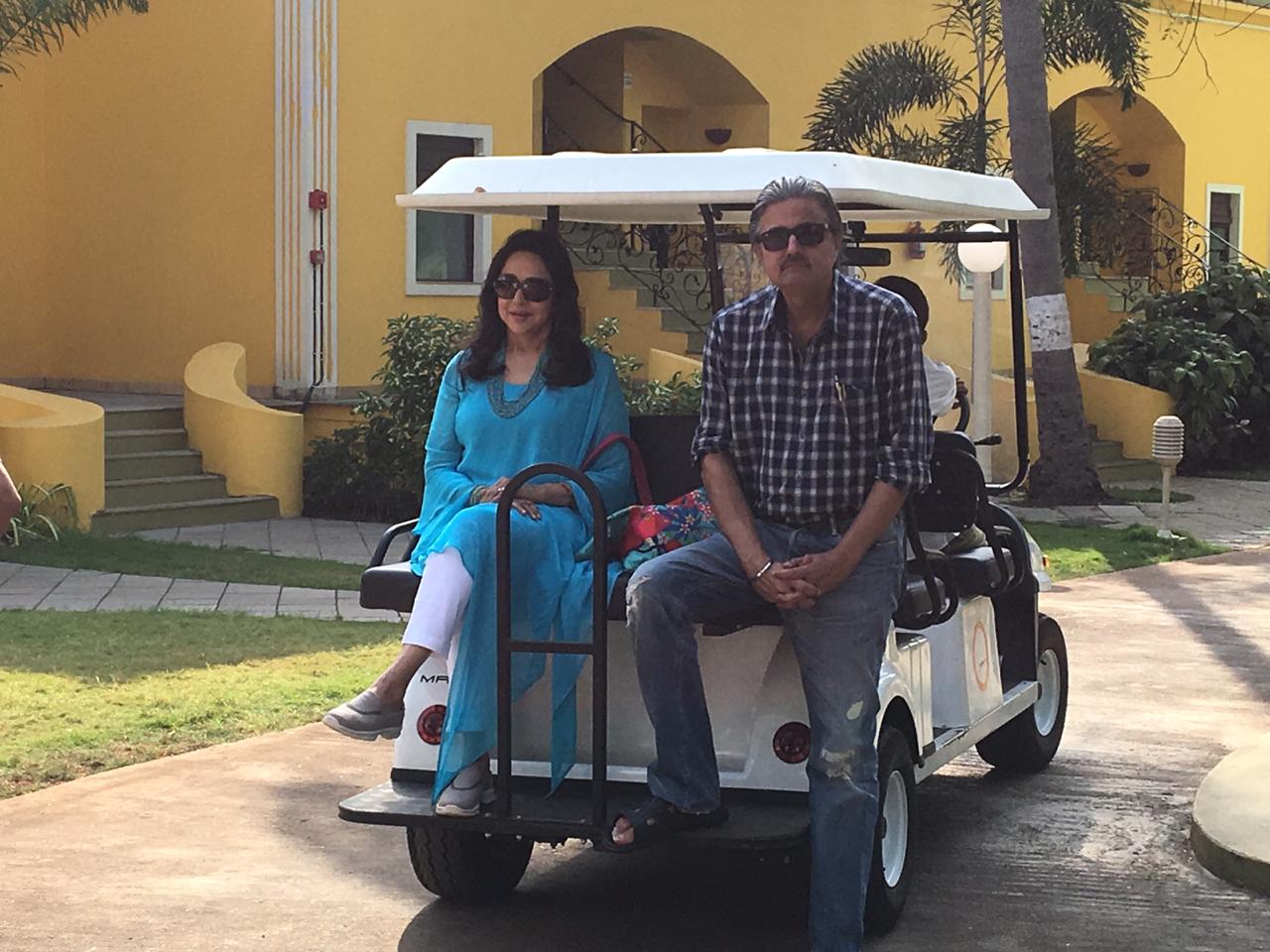
I believe that new businesses and ventures and assignments are often unplanned and happen due to destiny, to people looking for opportunities with an open mind. My newest venture, which consumes my thoughts and time these days – and makes many people happy besides myself – arose from Thailand, my favourite country to travel to. I love its pace, the food, the people, the treks and the golf. My family and I were in Bangkok in December 2019 to celebrate New Year’s Eve. On the third day of our trip, my wife came down with a bad stomach and was confined to the hotel room. I signed up for a one-day cooking class just for fun – I am a vegan, and Thai food is my favourite. In the class, I was hooked. I cooked for the first time in my life, and learnt a few dishes. So I got a list of ingredients and sauces from the hotel’s chef – and when we flew back to Bangalore, it was with 25 kgs of excess baggage! It was a great step in my life’s journey to find that one can use so much creativity in cooking with new ideas and experiments.
When the lockdown began, I found I had all the time in the world to pursue my new passion, two new passions actually – learning to play the piano, and cooking Thai food! The lockdown extended, and so did my Thai menu, as I experimented with herbs, sauces and flavours, getting further inputs from my teacher in Bangkok. Friends kept asking me for more. I decided to convert a part of my office to a small commercial kitchen, and began practicing. Very soon this turned into a takeaway kitchen, serving authentic Thai vegan food. Learning and starting a new business is exciting and intoxicating! I don’t know what its future will be – but for now, it just had to be done!
I truly admire Sindhis, besides being proud of being one. I feel I have won an ovarian lottery by being born into a Sindhi family, and that too, into the right family! We Sindhis are shrewd, nimble-footed, resilient, courageous, generous, and possess an amazing never-say-die spirit. You will rarely find a Sindhi beggar or thief or conman or economic offender. The saying that Sindhis are like snakes and cannot be trusted is completely stupid. Sindhis are the most trustworthy community; don’t forget that we pioneered international finance way back in the 1700s, when our hundis were honoured in many trading countries and valued even more than local currencies!
The correct analogy for a Sindhi is a spider. I take inspiration from spiders. A spider painstakingly weaves a web, and if it breaks or is destroyed, it falls. But silently, without fuss, it gets up and starts all over again. And a spider does this innumerable times, right through its life.
This is the true spirit of a Sindhi, who gets up, starts afresh, maybe this time finding a different spot or place to make the web, not afraid to rebuild again! Most of us Sindhis like living outside a comfort zone, and end up leading fruitful and interesting lives. Audacity and perseverance, even in the face of failure, always wins – always!
_____________________
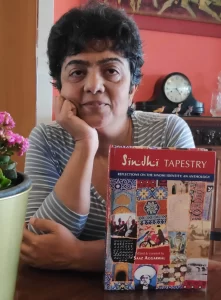 Saaz Aggarwal is an independent researcher, writer and artist based in Pune, India. Her body of writing includes biographies, translations, critical reviews and humor columns. Her books are in university libraries around the world, and much of her research contribution in the field of Sindh studies is easily accessible online. Her 2012 Sindh: Stories from a Vanished Homeland is an acknowledged classic. With an MSc from Mumbai University in 1982, Saaz taught undergraduate Mathematics at Ruparel College, Mumbai, for three years. She was appointed features editor at Times of India, Mumbai, in 1989.
Saaz Aggarwal is an independent researcher, writer and artist based in Pune, India. Her body of writing includes biographies, translations, critical reviews and humor columns. Her books are in university libraries around the world, and much of her research contribution in the field of Sindh studies is easily accessible online. Her 2012 Sindh: Stories from a Vanished Homeland is an acknowledged classic. With an MSc from Mumbai University in 1982, Saaz taught undergraduate Mathematics at Ruparel College, Mumbai, for three years. She was appointed features editor at Times of India, Mumbai, in 1989.
Courtesy: Saaz Aggarwal/Book ‘Sindhi Tapestry’